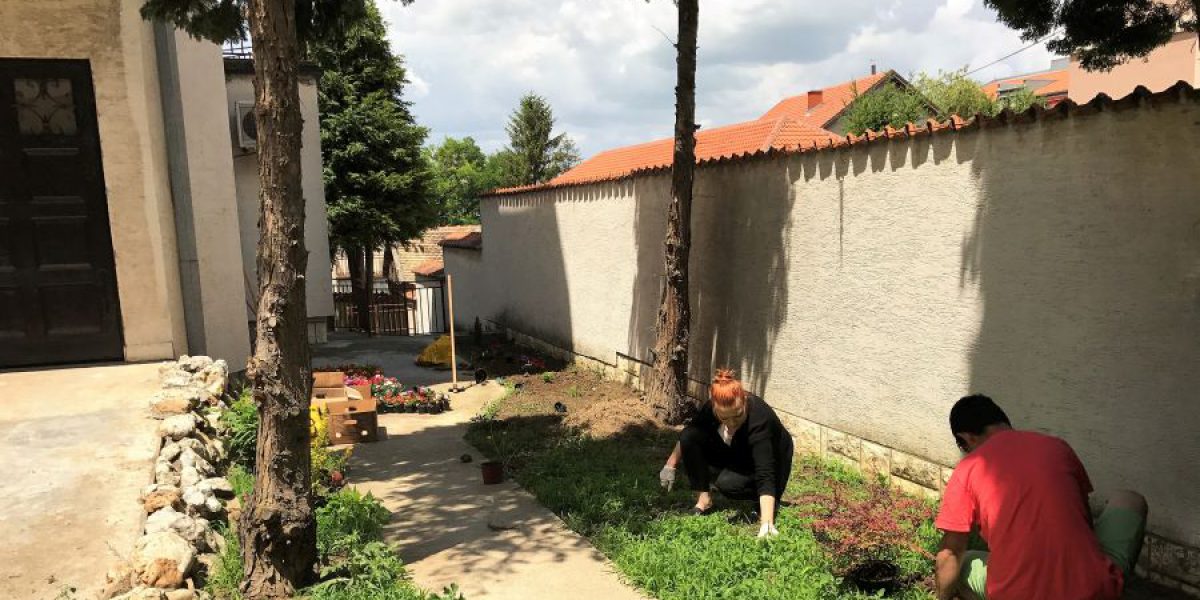Universal Children’s Day also for unaccompanied refugee children in Serbia
20 November 2017

Belgrade, 20 November 2017 – To celebrate Universal Children’s Day, we share an article from JRS Serbia about their Pedro Arrupe House, where they are providing support to 13 unaccompanied and separated children.
Since 1954, each 20th of November is Universal Children’s Day. On the same day but in 1959, the UN General Assembly adopted the Declaration of the Rights of the Child and, in 1989, the Convention on the Rights of the Child.
According to UNHCR, there are nearly 22.5 million refugees, over half of whom are under the age of 18. In 2016, 63,300 asylum seekers applying for international protection in the Member States of the European Union were considered to be unaccompanied children. Thousands more are stranded on Europe’s doorstep.
Children on the move are one of the most vulnerable groups in Europe and they suffer several violations of their human rights, with higher risks if they are unaccompanied. Of the 5,390 children that expressed the intention to seek asylum in Serbia in 2016, 177 (165 boys and 12 girls) were unaccompanied and separated children. During the first four months of 2017, 35 unaccompanied and separated children sought asylum in the country (33 boys and two girls).
In May 2017, the Jesuit Refugee Service in Serbia opened an Integration House for vulnerable refugees to take special care of unaccompanied and separated children. The Pedro Arrupe House aims to help children up to age 14 with a high level of risk for their safety, health or that have been separated from their family on their path to reach Europe. The house has a capacity of 20 children.
The children accommodated in Pedro Arrupe House are assigned with different tasks considering their capacities, to ensure the smooth running of life in this small community. Apart from the provision of basic needs such as shelter, food, clothes and medical needs, there are joint activities as well as individual psychological support provided by JRS and partners’ staff. There is also a lawyer that provides legal advice about asylum and personal legal issues.
Volunteers and staff do amazing work to organize educational and creative workshops for the children of the house. Twice per week these children go to the American International School in Belgrade to play football, cricket, or just to hang out and talk with the students.
As the Jesuits do all around the world, JRS Serbia considers education a very important aspect for refugee children’s wellbeing, and all the children from the shelter are going to schools since September. The Ministry of Education of the Republic of Serbia has included all refugee children in the formal education system. JRS Serbia works with them to integrate refugee children in the system.
Since May until now, JRS Serbia has taken care of 17 children. At this moment, there are 13 living in the Pedro Arrupe House. The youngest is just 9-years-old. JRS staff are with them 24 hours per day, providing them with all the support they need. Most of them have started the process of resettlement with the UNHCR, and one is already in the asylum system in Serbia. Medical issues are being handled in cooperation with the health system in Serbia, where we have found a very good response from all the institutions.
Unaccompanied and separate children in Serbia have the right to apply for asylum as any other refugee. Once they are accommodated, the Centre for Social Welfare appoints one of the professional workers to be their guardian, who makes all the important decisions for them (regarding health, wellbeing and the child’s best interest). For the eight months JRS Serbia has been working on this project, it has developed relationships and it cooperates with this institution and the guardians. All the work that JRS Serbia is doing is being monitored by the Ministry of Labour, Employment, Veteran and Social Affairs, who have been a great support in making this project work. JRS Serbia is also cooperating with other actors in this area, such as with Divac Foundation, SOS Children Villages, MSF and “Philanthropy”.
Children on the move are one of the most vulnerable groups in Europe and they suffer several violations of their human rights, with higher risks if they are unaccompanied.
